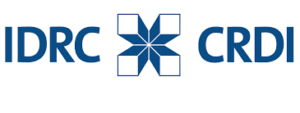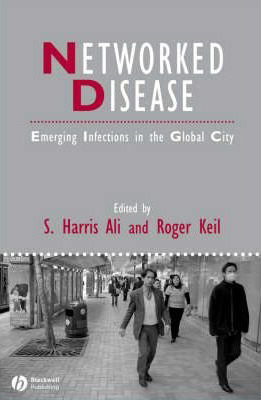
Outline of Research Study
Our research project can be understood to have two main objectives.
The first is to identify and analyze the social (we use this term to include the cultural, political and economic dimensions) and environmental dimensions of the Ebola Virus Disease (EVD) outbreaks in West Africa (Liberia, Sierra Leone) and the Democratic Republic of Congo (DRC).
The second is to use our insights from West Africa to improve existing public health response strategies in the DRC through the application of community-based initiatives.


































The research will follow three phases.
The first phase focuses on how social, political-economic, cultural and environmental factors contribute to making a particular community vulnerable to the onset of an EVD outbreak.
The second phase employs the method of popular epidemiology to closely examine and analyze expert-lay interactions, and expert and lay ways of knowing, both during and after an outbreak. We adopt this approach to ensure that local, context-based knowledge is incorporated in all aspects of the outbreak response, including case identification and contact tracing.
The third phase focuses on how locally-based, context-sensitive knowledge can be applied at the practical level through community-based initiatives. We pursue this objective by conducting community-based workshops in the DRC. The purpose of these workshops is to facilitate the sharing of results from the first two phases with our research partners and the communities at large in West Africa and the DRC. A second objective of the workshops is to help identify ways we can build our insights into future outbreak response in a pragmatic manner.
Control of the current Ebola outbreak in the Democratic of the Congo (DRC) has been challenged by increasing community resistance, mass movements of contacts and insecurity. This has challenged international Ebola containment efforts including inconsistent access to cases, dead bodies, and high-risk individuals and contacts. Resistance to response efforts stems from distrust of national and international actors whose understanding of the local context.
Ebola containment has to transition from a medical approach (e.g., vaccination, contact tracing) to an understanding of the social, economic, and political complexity of addressing the country’s first outbreak in North Kivu and Ituri Provinces on the eastern side of the country. As an approach to restoring trust in outbreak settings and enhancing participation in interventions, the Community-Based Initiative model engages local leaders in conversations about Ebola-related activities and mobilizes community members to conduct door-to-door surveillance. The effectiveness of the CBI model ranges from creating local champions, local ownership of the response to negotiating with marginalized subcultures, all within existing social structures that were recognized by local populations.
The Community-Based Initiative has proven very successful in containing the 2014 Ebola outbreaks in West Africa. In partnership with Dr. Mosoka Fallah, head of the Community-Based Initiative (CBIL), and Dr. Joseph McCarthy director of the Sierra Leone Urban Research Centre (SLURC), we will investigate how such an approach can be adopted in the DRC to respond to the current Ebola outbreak they are now facing.
Director of Public Health Raoul Kamanda Mangamfu in the DRC, who is heading the Communication and Community Engagement pillar of the national Ebola response has asked CBIL/York team to support the community engagement and Communication Pillar, through cellules d’animation communautaire (CAC) model. We operationalize the CAC model according to the newly adopted national strategy for reducing morbidity and mortality in Ebola-affected areas and preventing spread to currently unaffected areas. This will be done by mobilizing, empowering and training these local champions who will, in turn, liaise between national response coordinators and village-level leadership. The local champions approach will ensure contextual and cultural awareness as well as local ownership of response activities for the final push to end Ebola.
Two workshops were held in Kinshasa in the period of 26 June – 13 July 2019 by members of CBIL/York team to brief and train members of the DRC Taskforce for Community Engagement and the DRC National Communication Task-Force in Health on the approach.
Preliminary field research was also initiated by Dr. Mosoka Fallah in the eastern DRC where the outbreak is most serious and connections have been established in Goma to pursue further research in the future (pending funding) regarding on-site implementation related to the following objectives.
Objectives
- To assess the impact of community entry via local champions on village adoption of the CAC model and fulfillment of development needs
- To evaluate the impact of the CAC model on reducing resistance to response teams in terms of changes in rates of vaccination, treatment-seeking, and safe and dignified burials
- To determine the role of the CAC model in changing perceptions of village-level insecurity
- To measure changes in mobility of contacts specifically and visitors in general as a result of the CAC model
Free Access to Networked Disease: Emerging Infections in the Global City (Harris Ali & Roger Keil). This edited collection was recently made available online by the publisher and can be viewed here.
This work was carried out with the aid of a grant from the International Development Research Centre, Ottawa, Canada. 


